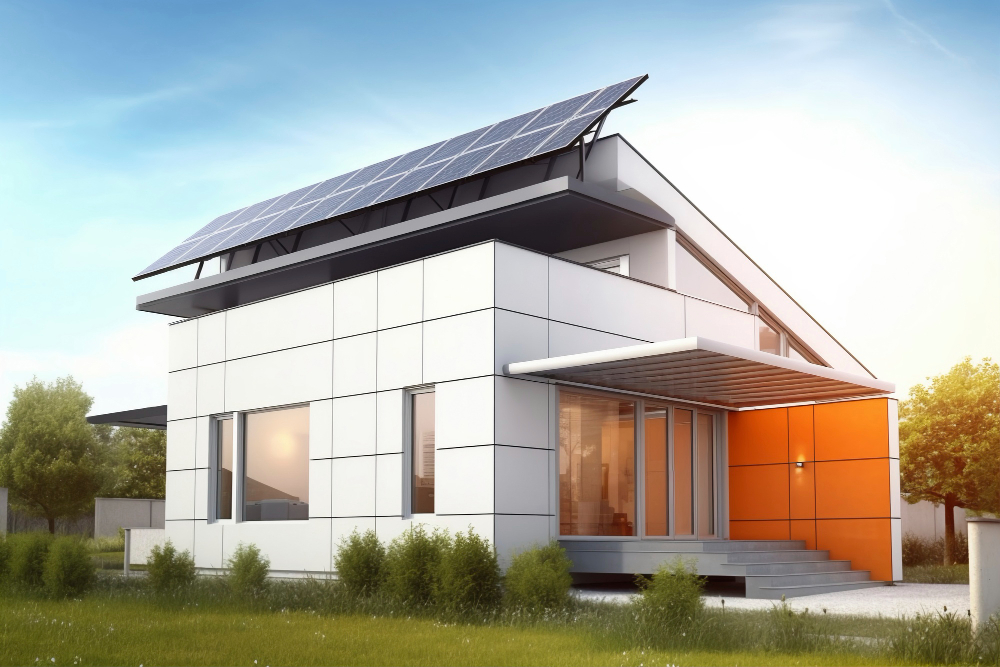As energy prices go up, going green is the concern of homeowners these days; solar power is becoming one of the most preferred long-term cost-cutting and eco-friendly options. However, is it worth installing in your home? Yes—if managed with the right attitude. For house owners considering solar power, being aware of the economic, practical, and environmental benefits is essential to an informed decision.

The Benefits of Installing Solar for Homeowners
1. Value Addition to Your Property
Solar panels generally qualify as an upgrade to a property, and owners would be willing to pay a premium for a house that already has an existing, functioning system installed. Not only does it mean future cheaper electricity bills, but also a newer, more efficient home layout. This can be the selling point for a buyer in a competitive housing market.
2. Optimized Power Costs
Easily the most prominent and physical benefit of solar energy is a considerable reduction in electricity bills. Depending on your location, amount of sunlight exposure, and electricity use, solar panels can make a substantial cut in your utility bills, quite possibly even make them zero. This is especially beneficial at times of maximum usage when normal energy prices are typically high.
3. Less Negative Effect on the Environment
Solar energy is a clean, renewable energy source that not only lowers your carbon footprint and fossil fuel consumption but also lowers greenhouse gas emissions and other air toxins per unit of electricity from the sun. It also saves water, so it’s green.
4. Long-term cost savings
Solar systems are an investment; they will pay for themselves over the long haul. After the system is installed, it is very cheap to generate electricity. The longer you reside in the home, the more money you save, particularly with increasing utility bills. Homeowners as a group pay off the system in a few years and enjoy decades of decreased or no electricity bills thereafter.
5. Available Grants and Rebates
Several governments provide rebates, tax credits, and other subsidies to promote domestic consumption of solar energy. Incentives reduce the upfront cost of installation by a huge margin, thereby making solar energy more inviting and convenient for homeowners to embrace.
Important Factors to Consider Before Investing
Though the advantages are considerable, solar is not a one-size-fits-all solution. Here’s what to consider:
- Understanding System Size and Investment: Larger systems generate more power but at a higher initial cost. The balance between cost and performance must be struck.
- Roof Suitability: Sunlight exposure, roof orientation, and shading will affect the system’s efficiency. A high, day-exposed roof will provide improved performance.
- Net Metering: Certain utilities have programs wherein you can send back surplus energy into the grid and earn extra savings.
- Electricity Use: Larger single-family homes using more electricity will benefit the most from solar. Your usage pattern will determine the system size that will yield enough savings.
- Warranty and Maintenance: Make sure your solar system is well-supported and low-maintenance. A well-supported system guarantees optimal performance and reliability over the long term.
Practical Steps Before Installation
1. Research Your Options
Choosing a manufacturer that provides all the components in one brand, including panels, inverter, and mounting, guarantees compatibility, quality, and efficiency. Familiarize yourself with the overall solar system installation and how various components work together. Familiarity with the fundamentals of solar will enable you to make informed choices before installation.
2. Consider Financing
Solar systems can be funded through many subsidies and incentives provided by governments and local municipalities. Such subsidies involve tax credits, rebates, and low-interest financing, each with its own merits and qualifying requirements. It’s worth considering these factors depending on your financial goal.
3. Plan ahead
If you are planning for a future improvement to your home, like an extension or an increase in your energy usage, you should think about this during the solar system design. Designing a system that allows you to easily include future improvements, saving you time, effort, and money later on, and allowing your solar investment to meet your needs in the long run.
Solar energy isn’t a trend—it’s a cost-saving, forward-thinking choice that’s balancing expense reduction with environmental awareness. The initial expense can be overwhelming, but the long-term advantage of cost savings, added equity in the home, and self-sufficiency from the energy grid creates a fast-growing smart choice for homeowners.
For homeowners, solar power is a chance to be part of a cleaner, smarter lifestyle. Properly designed systems and good planning can turn a home into an energy-smart, value-enhancing property—one that shows, yes, solar power is worth it.


